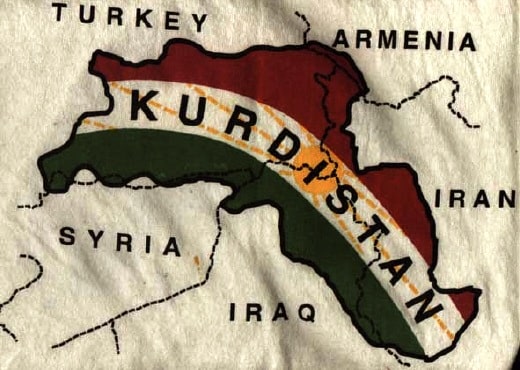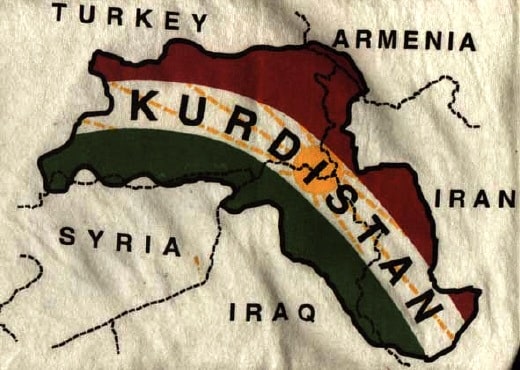
One of the unintended consequences of the US invasions of Iraq in 1991 and 2003 — and their aftermaths — has been the unleashing of the Kurdish nationalist genie in the Middle East. Today, a de-facto Kurdish statelet exists in northeast Iraq, one is emerging in northern Syria, and, after a period of attempted reconciliation, the Kurdish-Turkish violence is metastasizing again throughout Turkey. Only the Kurdish region in northwestern Iran is quiet.
The Kurdish genie has its origin in the breakup of the multi-ethnic Ottoman Empire, in the self-referencing ideas for self-determination in President Woodrow Wilson’s Fourteen Points, and in the failure (see pgs. 5 & 6) of the Versailles Peace Conference (1919) to appreciate Kurdish national aspirations. The Versailles Conference made a mockery of Wilson’s ideas, particularly in the Middle East. In truth, the question of an independent Kurdish nation has been bottled up since the (1) Sykes-Picot Agreement (1916) proposed to carve up the Ottoman Empire in the interest of the European colonial powers, (2) Treaty of Sèvres (1920) tried to effect that division, and (3) the Treaty of Lausanne (1923) undid the proposed partition of Anatolia by establishing the borders of modern Turkey.
Together, these events buried Kurdish national aspirations in southeast Turkey by incorporating that part of Kurdistan into the Turkish Republic and the League of Nations’ mandates of Syria and Iraq. The modern multi-ethnic states of Turkey, Syria, Lebanon, and Iraq, as well as Jordan, and Israel emerged from the confused detritus of the interaction of Wilson’s naive idealism [1] with the cynical machinations of the European colonial powers.
Today the Kurds remain the world’s largest ethnic group without a national home, but to attain one, now requires the continued destruction of the existing national structure in Syria, Iraq, and perhaps Turkey or even Iran. Given that the national structures of Turkey and Iran are extremely strong, Kurdish nationalist ambitions to move beyond a rump status in Syria and Iraq are likely to run into very bloody roadblocks.
A recent report by Florian Neuhof in the Middle East Eye illustrates the growing complexities of the ongoing emergence of an oil rich Kurdish statelet that is part of the larger partitioning of Iraq. Together with the emerging partition of Syria, the spillover into oil-poor Turkey and possibly Iran are unknowable. One thing is clear, however, arrogant macho statements about the Middle East, like sending 30,000 US troops into Iraq to “knock the hell” out of ISIS (Trump) and “carpet bombing” Islamic militants in Syria to see if we can make “sand glow in the dark” (Cruz), or colossally ignorant statements about intervening using “smart power at its best,” like we did in Libya (Clinton) do not augur well for America’s future role in the Middle East.
———————
[1] A hilarious example of the condescending ignorance surrounding the Kurdish Question at Versailles can be found in Dr. E. J. Dillon’s contemporary account, The Inside Story of the Paris Peace Conference, February 1920. The book is in electronic format, courtesy of Project Gutenberg, and all you have to do is google the word “Kurd” to get a contemporary feel for how people viewed the Kurdish Question at the Versailles Peace Conference.


